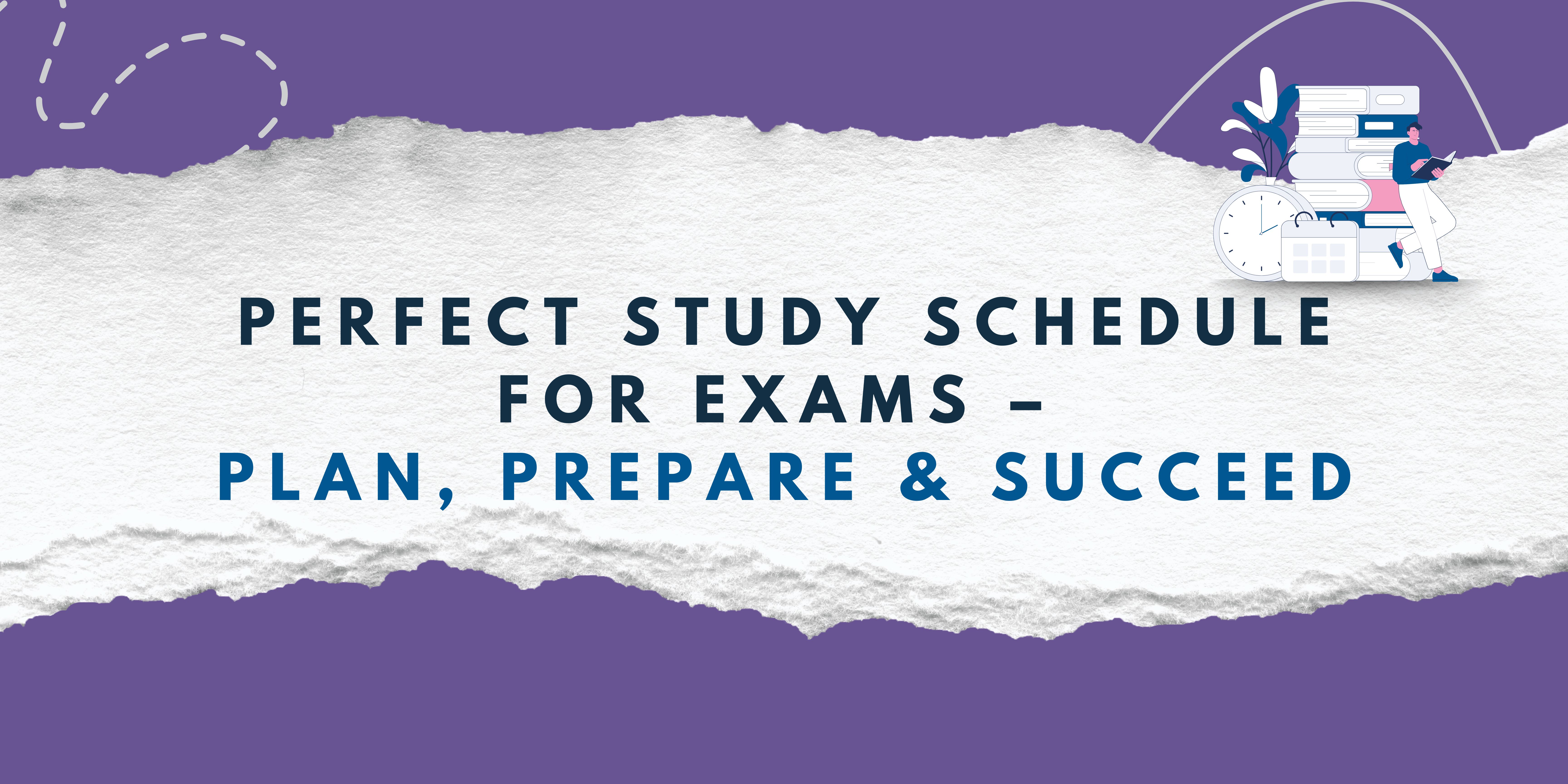How to Create the Perfect Study Schedule for Exam Success




Exams can be stressful, but a well-planned study schedule can make things much easier. The key is staying organized, and consistent and avoiding last-minute cramming. Here’s a step-by-step guide to help you create an effective study plan and ace your exams!

A study plan helps you stay on track and avoid feeling overwhelmed. It breaks your workload into small, manageable tasks and gives you enough time to revise. Here’s how it helps:
Yes! A study plan keeps you organized and ensures you don’t miss important topics. It helps you:
A good study plan is important, but you also need detailed exam tips to feel confident while writing your exam. Check the table below to learn more!
Everyone studies differently. Ask yourself:
Once you understand how you learn best, you can design your study plan accordingly.
Mark your work, classes, and personal activities on a calendar. This helps you see how much time you have left for studying. If your schedule is too tight, consider reducing some non-essential activities.
At the start of the class, teachers usually recommend how much time to spend on each subject. Adjust this based on your strengths and weaknesses. More challenging subjects should get extra study time.
Don’t wait until the last minute! Set deadlines a few days before the actual due date to allow time for review. This reduces stress and gives you a buffer if something unexpected comes up.
Decide which days and times you’ll study. Treat study sessions like appointments; you wouldn’t skip a meeting, so don’t skip study time! Add these sessions to your calendar just like any other important event.
Instead of vague goals like “study math,” be specific: “Complete Chapter 5 notes and practice quiz.” Setting clear goals helps you track progress and stay motivated.
Breaks help keep you fresh and focused. Your brain needs rest! Try the Pomodoro Technique:
Taking regular breaks while studying helps prevent fatigue. Want to learn how to manage your time better and use creative study methods? Check the table below!
Studying with a friend or group keeps you accountable and makes learning more interactive. You can quiz each other, share notes, and discuss challenging topics.
If you miss a study session, don’t stress; just reschedule it. A good study plan is flexible and can be adjusted as needed.
Mix up your study techniques to stay engaged:
That’s okay! If you feel demotivated, aren’t getting good results, or don’t have enough time, tweak your schedule. Try:
Your plan should be designed to your routine and goals. Some students prefer a physical planner, while others use calendar apps with reminders. Choose what works best for you!
| 7:00 AM – Wake up & freshen up |
| 7:30 AM – Revise the previous day’s topics | |
| 8:00 AM – Study a difficult subject | |
Afternoon: | 1:00 PM – Lunch & break |
| 2.30 PM – Practice questions | |
| 3:30 PM – Study a moderate subject | |
Evening: | 5:00 PM – Break & light exercise |
| 6:00 PM – Revise key concepts | |
7:00 PM – Study an easy subject
| |
Night: | 9:00 PM – Quick revision |
| 10:00 PM – Sleep (7-8 hours is essential!) |
If you're a Class 10 student wondering how many hours you should study, the table below will guide you in creating the perfect study plan!
.png)
There are many mobile apps designed to help students manage their study time effectively. But if you prefer a more traditional approach, you can write your weekly or monthly study plan on paper and stick it on the wall where you can always see it.
Here’s a quick summary:
Interval Learning offers personalized one-on-one tutoring for your child right from the comfort of home. Sign up today and try a demo class!
4-6 hours with breaks is effective, but quality is more important than quantity.
That’s fine! Adjust it as needed. If you miss a session, reschedule instead of stressing.
It depends on you! Some people focus better in the morning, while others prefer late-night study sessions.
Keep your phone away, use website blockers, and create a quiet study space.
Mixing subjects keeps things interesting. Aim for 2-3 subjects daily, alternating between hard and easy topics.